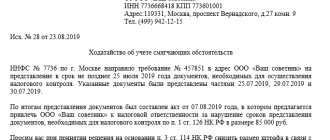Article 250 of the Criminal Code of the Russian Federation contains basic concepts relating to pollution, clogging of water with consequences and provides for its own penalties. As you know, water is our life.
Water pollution is a global problem. Therefore, our modern legislation provides for an article that regulates the activities of people in naturally protected areas where there are drinking sources and large water reserves. Multi-channel free hotline Legal advice on criminal law. Every day from 9.00 to 21.00
Moscow and region: +7 (495) 662-44-36
St. Petersburg: +7 (812) 449-43-40
Article 250 – water pollution
Water pollution is one of the most common criminal offenses. Let's look at brief and complete information on Article 250.
Persons who committed a criminal act under Art. 250 of the Criminal Code of the Russian Federation, bear the following punishment, imposed by the court depending on the severity and existence of certain circumstances:
- Imprisoned for three months or up to five years.
- Subject to a fine in the amount of 70 thousand to 200 thousand rubles.
- Perform correctional, compulsory and other work for a period of 360 hours to 5 years.
Persons bear criminal liability. The penalty depends on the decision made by the court.
Due to pollution, clogging, depletion of water on earth or underground, sources for drinking or other modification of the composition of water, which entailed causing significant damage to animals or plants, fish, forests or agricultural enterprises, legal entities and individuals bear appropriate punishment.
Legal entities and individuals pay a fine of up to seventy thousand rubles or one salary or other earnings of the guilty person for six months or are deprived of authority to occupy specific positions. Convicts also do not have the right to work in a specific area for several years. The perpetrators are assigned to compulsory community service for a period of up to 360 hours or other work for up to 1 year, or arrested for 3 months.
In addition, actions that caused harm to a person, plant or animal, regardless of whether they were done in a protected area or park, in an area where an emergency situation (ES) occurred, lead to the following consequences:
- persons receive a fine of up to 210 thousand rubles or pay it with one month of their salary or other income for a period of one and a half years;
- persons can undergo special work for up to 480 hours, general compulsory work for up to 2 years;
- guilty persons may also be imprisoned for 2 years;
- criminals are forced to undergo correctional labor.
If a person’s actions have resulted, in addition to harming protected plants, wild animals and the environment, in the death of one or more persons, he is sentenced to 5 years of arrest. In addition, forced labor for the same terms is provided for this offense.
Judicial practice under Article 250 of the Criminal Code of the Russian Federation
Resolution of the Supreme Court of the Russian Federation dated 09/03/2019 N 87-AD19-13
At the same time, as follows from the case materials, the resolution of the senior investigator of the Kostroma Interdistrict Investigation Department of the Investigative Directorate of the Investigative Committee of the Russian Federation for the Kostroma Region dated August 31, 2021 regarding the mass death of fish in the Solonitsa River, a criminal case was initiated on the grounds of a crime under Part 2 of Article 250 of the Criminal Code of the Russian Federation, which establishes criminal liability for pollution, clogging, depletion of surface or ground water, sources of drinking water supply, or other changes in their natural properties, resulting in harm to human health or mass death of animals, as well as those committed on the territory of a reserve or wildlife sanctuary or in an environmental disaster zone or in an environmental emergency zone.
Appeal ruling of the Judicial Collegium for Criminal Cases of the Supreme Court of the Russian Federation dated November 20, 2018 N 5-APU18-78
The Investigation Department of the General Prosecutor's Office of the Republic of Kazakhstan is investigating a criminal case against K.V. Sviridov. in committing crimes under Art. 250, paragraph 1, part 3, art. 189 of the Criminal Code of the Republic of Kazakhstan. On May 13, 2017, the accused was put on the wanted list and detained on the territory of the Russian Federation on August 1, 2021.
Commentary to Art. 250 of the Criminal Code of the Russian Federation
Comments on the article are necessary to clarify the circumstances of guilt and establish the qualifications of the offense, as well as the type of crime.
The object of the crime includes water that is on the ground and under it, drinking water bodies. Surface waters include those that are all or part of the time on the ground. Underground - those that are located underground (mineralized ones are also included). Drinking reservoirs - objects containing water used by the population for drinking.
Pollution is understood as the dumping or otherwise entering a body of water or other object of various biological and chemical substances. Because of it, the composition of water deteriorates, which has a bad effect on the growth and life of plants, animals, birds and the life of people.
Such actions contribute to limiting water use. Littering is the discharge or influx of various unnecessary things into waters and other objects, which spoil the general condition and make it difficult to use water objects. Water depletion consists of a steady decrease in reserves and a deterioration in the properties of surface and underground waters. Other modifications of reservoirs and other objects, which are manifested in a change in their biological composition or a modification of the initial composition.
Manifests itself in the use of industrial, economic and other facilities with damaged cleaning devices, the liquidation of cleaning devices, non-compliance with standards for transportation, storage, use of substances, the commission of acts that resulted in clogging of sources and caused damage to the zoological or plant world, fish, forest or agricultural farm. All stated points are regulated by Art. 250 CC.
Significant harm comes from the consequences of the offense in question. These include the appearance of diseases or death of animals and plants, the destruction of fish, and places of rest. At the same time, the level of death exceeds the average by several times, the area is damaged or lost, and individuals are destroyed. The radioactive background changes to such an extent that there is a real threat to human life. The actions taken in the field of water pollution must have a direct investigative relationship, the method of committing the offense.
The offense ends when specific harm occurs. A crime can be committed both in the form of direct intent and through negligence. The subject of the offense is a person over 16 years of age.
Qualifying characteristics that are prescribed in the second part of Art. 250 UK:
- causing harm to a place, animals or fish, for example, death under Art. 246;
- causing harm on the site of the reserve, specified in Articles 247 and 262.
Thus, for a crime to arise, it is necessary to indicate qualifying characteristics, to have an object, a subject and a subject.
Commentary to Art. 250 Criminal Code
1. The objective side includes the following acts: a) pollution; b) clogging; c) depletion of surface or ground water or sources of drinking water supply; d) other change in their natural properties. A mandatory feature is a consequence in the form of causing significant harm.
2. Significant harm to flora or fauna, fish stocks, forestry or agriculture is an evaluative concept. It is necessary to take into account the number of dead aquatic animals, other animals, vegetation, forest trees, agricultural products, the ecological significance of the reservoir, the cost of lost or damaged in monetary terms, etc.
3. Reserves (Part 2) are environmental, research and environmental educational institutions aimed at preserving and studying the natural course of natural processes and phenomena, the genetic fund of flora and fauna, individual species and communities of plants and animals, typical and unique ecological systems.
Sanctuaries are territories (water areas) that are of particular importance for the preservation or restoration of natural complexes or their components and maintaining the ecological balance.
Consultations and comments from lawyers under Art. 250 of the Criminal Code of the Russian Federation
Consultations and comments from lawyers are necessary in order to determine the elements of a crime, understand a complex case and identify the perpetrators.
The components of the offense under the article include:
- An object. This includes the population, its health and livelihoods.
- Objective side. This includes water pollution and the consequences that have arisen due to this.
- Subject. A person is recognized as having legal capacity from the age of 16.
- Subjective side. This includes actions committed with direct intent and negligence.
The qualified composition in the presented article is the infliction of specific actions that led to harm to people or animals, which were carried out in a protected area where a certain emergency occurred.
The following laws are used to determine the degree of guilt of a person:
- Federal Law (Federal Law) “On Environmental Protection” (Articles 4, 16, 40, 42);
- Federal Law “On the sanitary and epidemiological welfare of the population” (Articles 10, 11, 18);
- RF CC (Articles 5, 7, 11, 42-62, 65-67);
- SanPiN 2.1.5.980-00 2.1.5;
- SP 2.1.5.1059-01.
From legal practice, the most common are Federal laws and Article 250 of the Criminal Code.
Water and marine pollution. Water pollution (Article 250 of the Criminal Code of the Russian Federation)
The generic object is public safety.
Species object - environmental safety.
The immediate objects are the environmental safety of the protection of water resources.
The objective side is expressed in three mandatory signs: an act in the form of alternative actions - 1) pollution, 2) clogging, 3) depletion of surface or ground water, sources of drinking water supply, 4) other change in their natural properties; consequences in the form of causing significant harm to flora or fauna, fisheries, forestry or agriculture and the causal relationship between the act and the resulting consequences.
Operation of industrial, agricultural, municipal and other facilities with faulty treatment facilities and devices, shutdown of treatment facilities and devices, violation of the rules of transportation, storage, use of mineral fertilizers and preparations, commission of other actions that resulted in pollution of water bodies and water sources and caused significant harm to animals or flora, fisheries, forestry or agriculture must be qualified under the relevant part of Art. 250 of the Criminal Code of the Russian Federation (clause 9 of the Resolution).
The composition is material by design and is considered complete from the moment the consequences occur.
The subjective side is characterized by a deliberate form of guilt. Some scholars also include negligence in the form of thoughtlessness and negligence,
Subject is a natural, sane person over 16 years of age.
Qualified type , Part 2, Art. 250 of the Criminal Code of the Russian Federation provides for criminal liability for water pollution resulting in harm to human health or mass death of animals, as well as committed on the territory of a nature reserve or wildlife sanctuary or in an environmental disaster zone or in an environmental emergency zone.
Causing harm to human health is expressed in health disorder, temporary or permanent loss of ability to work, causing serious, moderate or light harm to one or more persons (clause 4 of the Resolution).
Particularly qualified type , Part 3, Art. 250 of the Criminal Code of the Russian Federation provides for criminal liability for water pollution (Parts 1, 2) resulting in the death of a person through negligence.
An additional object is the life of a particular person.
The objective side is expressed in three mandatory features: the act, the consequences in the form of death and the causal connection between the act and the consequences that occurred.
The composition material by design and is considered complete from the moment the consequences in the form of death occur.
The subjective side is characterized by a double form of guilt: intent is directed in relation to the act and negligence in relation to the consequences in the form of death.
Marine pollution (Article 252 of the Criminal Code of the Russian Federation)
The generic object is public safety.
Species object - environmental safety.
The immediate object is the environmental safety of the marine environment protection sector.
The objective side is expressed in the act - pollution of the marine environment: 1) from land-based sources; 2) due to violation of the rules of burial or dumping from vehicles or
artificial islands, installations or structures erected in the sea, substances and materials harmful to human health and aquatic
biological resources or interfering with the lawful use of the marine environment.
The composition is formal in design and is considered complete with
moment of commission of the act.
The subjective side is characterized by a deliberate form
guilt. Some scholars also include negligence.
Subject is a natural, sane person over 16 years of age.
Qualified type , Part 2, Art. 152 of the Criminal Code of the Russian Federation provides for criminal liability for pollution of the marine environment that causes significant harm to human health, aquatic biological resources, the environment, recreation areas or other interests protected by law.
The composition, in contrast to Part 1 of this article, is material and is considered completed from the moment the consequences occur in the form of significant harm to human health, aquatic biological resources, the environment, recreation areas or other legally protected interests, if there is a causal connection.
Particularly qualified type , Part 3, Art. 152 of the Criminal Code of the Russian Federation provides for criminal liability for pollution of the marine environment (parts 1, 2), resulting in the death of a person through negligence.
An additional direct object is the life of a particular person.
The objective side is expressed in three mandatory features: action; consequences in the form of death and the causal relationship between the act and the consequences that occurred.
The composition material by design and is considered complete from the moment the consequences in the form of death occur.
The subjective side is characterized by a double form of guilt: intent is directed in relation to the act and negligence in relation to the consequences in the form of death.
Procedure for criminal prosecution
The principle “borrowed money and didn’t pay it back - a criminal case was opened” does not apply on its own. To achieve criminal liability, you first need to collect the debt through the court and record the large amount of the delay. If the debtor begins to pay, even in small amounts, then malicious evasion of debt repayment in his actions is unlikely to be confirmed. Therefore, there are very few criminal cases under Article 177 of the Criminal Code of the Russian Federation.
The situation is different for alimony debts. The state tightens enforcement measures against alimony defaulters almost every year. For this purpose, changes are being made to the Code of Administrative Offenses of the Russian Federation and the Criminal Code of the Russian Federation (in terms of toughening punishment), new restrictions and prohibitions are introduced. Therefore, criminal cases regarding alimony debts are often initiated without statements from the claimant. Bailiffs have the right to initiate a criminal case and begin an investigation into it. True, we should not forget that bailiffs most often perform their work “carelessly.”
What is the punishment for debt?
Criminal punishment for debts is imposed by a court verdict. According to Art. 177 of the Criminal Code of the Russian Federation for evading payment of accounts payable, a person may face:
- fine up to 200 thousand rubles;
- forced or compulsory labor;
- arrest for a period of up to 6 months;
- prison term up to 2 years.
The exact type and amount of punishment will be determined by the court. To do this, all circumstances surrounding the occurrence of the debt, mitigating and aggravating factors will be taken into account. If the defendant repays the debt in full before sentencing, he will be given a minimum sentence.
For late alimony payments, the debtor may be sentenced to forced labor or correctional labor, or to arrest for up to 3 months. In what case and to what? Find out this in an online consultation with our lawyers. The most severe sanction under Art. 157 of the Criminal Code is deprivation of liberty. He can be appointed for a period of up to 1 year.
Criminal prosecution for tax debt may entail the following types of penalties:
- fine from 100 to 300 thousand rubles;
- forced labor;
- arrest for a period of up to 6 months;
- imprisonment for up to 1 year.
Let us repeat once again that in addition to punishment under the article of the Criminal Code of the Russian Federation, all accumulated debt will be collected from the convicted person.




